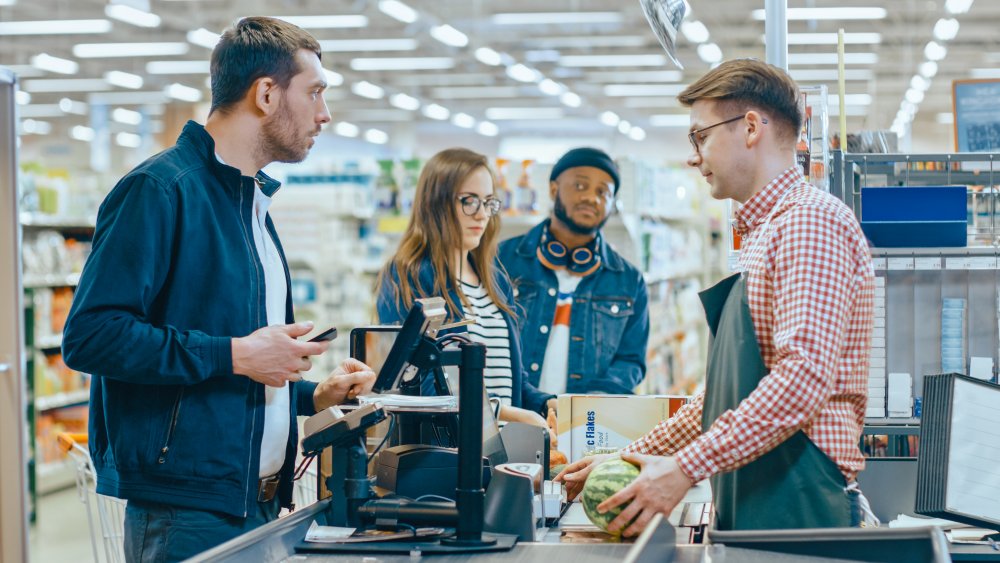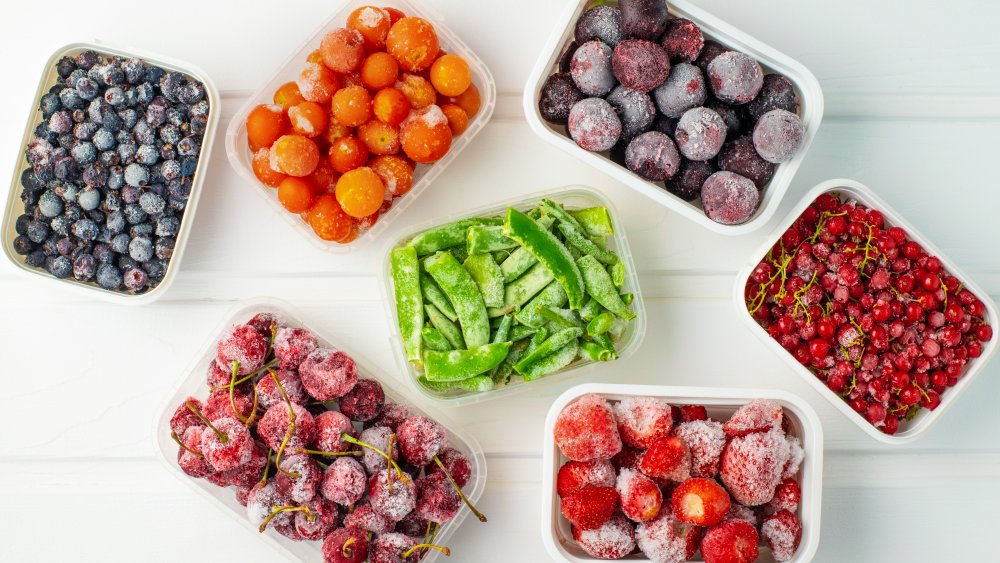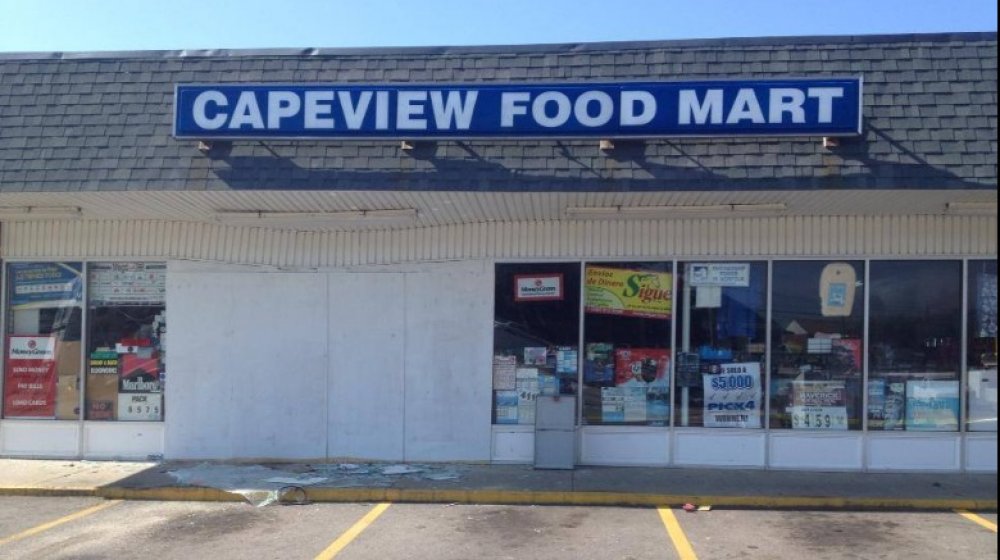Real Ways Grocery Shopping Might Change After The Pandemic
Someday, maybe soon, things will go back to semi-normal, meaning we will all be able to go out of the house again, and once we do, there will actually be places we can go. We will meet in bars and restaurants, we will go to the movies, there may even be concerts and festivals and sporting events again. And maybe, if we are lucky, we can once again shop at our leisure (mask and glove-free!) in grocery stores whose shelves are all fully-stocked.
And yet, in the wake of the coronavirus pandemic, there are likely to be some significant changes to just about every aspect of our lives, not least the way we shop for our food. New habits we've formed, new preferences established, and new concerns for our health and safety that we won't soon put aside, even when the threat of serious illness no longer hangs over our head.
Shoppers will be less focused on fresh produce
One of the not-so-fun things we've all become used to is product shortages, with the result that when something we want is in stock, we're now conditioned to buy a bunch of it. While the shortages may not last, this "shortage mentality" isn't going to be so easy to shake, nor should we necessarily try to do so. "Be prepared," hasn't been the Boy Scout motto since 1907 for nothing (via Scouting Magazine), and it's advice all we non-scouts (and even non-boys) would do well to follow.
While the essence of preparedness does not mean we'll be avoiding fresh produce altogether, it means we may be purchasing more longer-lasting items such as citrus fruits and potatoes. It means we will also continue to reevaluate our feelings regarding canned and frozen foods. Today notes that many people who would earlier have shunned such foods in favor of eating local, seasonal produce are being reminded of just how convenient it is to have a stash of ready-to-cook, non-expiring fruits and veggies on hand.
Free samples may be gone forever
One unfortunate casualty of coronavirus shopping precautions has been the demise of the free food sample tables. When once you could visit a store like Costco and practically make a meal off all the free eats on offer, many grocers, both small and large, may well be reluctant to resume a practice that involves a high degree of person-to-person germ transmission and cross-contamination even if best practices such as using gloves are always followed.
Jon Roesser, the general manager of small Pennsylvania grocery chain Weavers Way Co-op, tells Today, "It's incredibly hard to predict when we'll be able to open things back up for our customers." He says that Weavers Way does hope to be able to find a way to incorporate sampling again sometime in the future, though, since it can be difficult to introduce customers to new products from smaller vendors if they can't try before they buy.
More grocery stores could be 'going ghost'
Online grocery shopping was, not too long ago, something that not very many people were willing to do. Before the pandemic, Atlantic relates that only 3 percent of grocery purchases were made online, as opposed to about half of all book and music sales and 40 percent of consumer electronics purchases. A recent survey by market research agency Acosta, however, found that 51 percent of grocery shoppers had placed an online order between March 10 and April 7, 2020. What's more, 31 percent of those shoppers say they expect that there's a high probability they'll continue to shop for some of their groceries online even after all COVID-19 restrictions are lifted.
In order to serve this increased population of online shoppers, more grocery stores may be converting to dark locations, which are fulfillment centers where the only shoppers are ones employed by Kroger, Amazon, or other retailers to fulfill orders destined for pickup or delivery.
Smaller grocers might either thrive or suffer
Today optimistically projects that smaller grocers might see a resurgence in post-pandemic business from shoppers frustrated by wait times and shortages with larger supermarket chains. Atlantic, on the other hand, finds it likely that big box retailers might establish even more of a stranglehold on the grocery business. It remains to be seen just what the long-term economic fallout of the pandemic will be, since there's no question that the larger companies like Amazon, Walmart, and Kroger have far more resources to weather any market downturns.
One determining factor as to whether small groceries will be able to thrive in a post-pandemic world is the economic sector they cater to. Small retailers that can keep their prices low may continue to serve a customer base priced out of more expensive offerings from larger grocers focused on serving online shoppers. If, however, there is a widespread turn to online grocery shopping even among lower-income earners, which could happen if grocery chains adjust their pricing and delivery fees and are able to incorporate online coupons or similar savings, then small grocers could wind up struggling to keep up. As Kansas grocery owner Jordan White told CNN Business, "When all the dust settles and people are more in tune with online, there's going to be a significant hit [to small grocers] long term."




